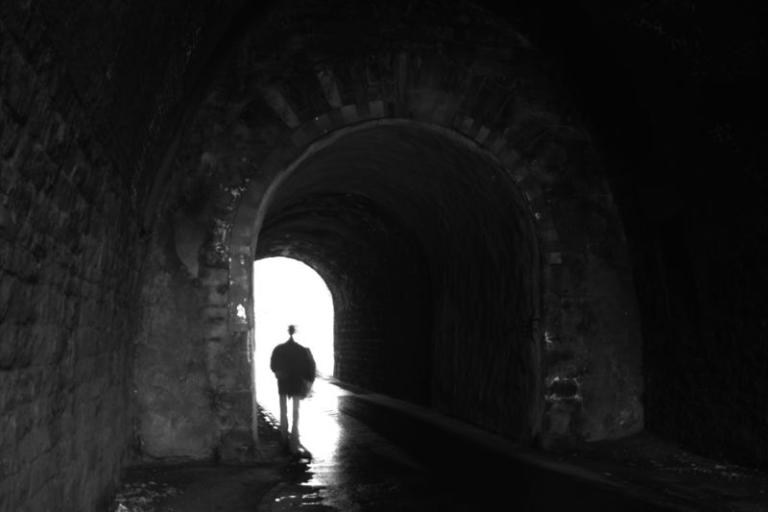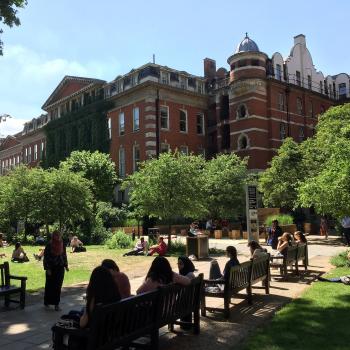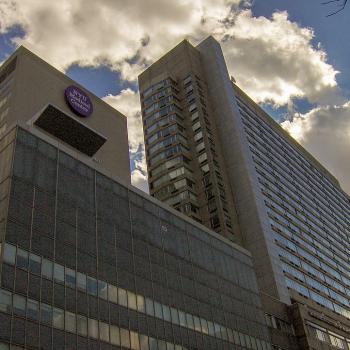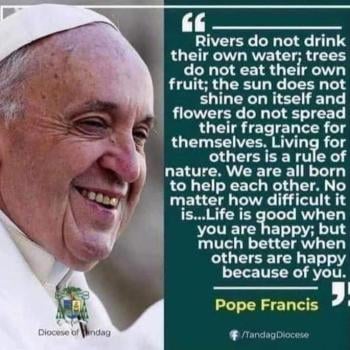
Another item from Erasing Death: The Science That is Rewriting the Boundaries Between Life and Death, by Sam Parnia, M.D., Ph.D., an Anglo-American specialist in cardiac-arrest resuscitation. Here, he cites comments by Dr. Tom Aufderheide, a professor of emergency medicine at the Medical College of Wisconsin:
I was a brand-new doctor. . . . I had in fact been a doctor for just five days and had never treated a patient with a cardiac arrest. I was told [by my superiors] to go and see a patient who was having a heart attack on the CCU. I walked into the room and introduced myself, and the gentleman introduced himself back. Then at that point his eyes suddenly rolled back in his head, and he fell back into his bed. Being a doctor for just five days, I figured there were probably only two options to account for what had just happened — either he had fainted, or he had suffered a cardiac arrest. I knew it was the latter, as I suddenly saw five nurses run into the room with terrified faces! At that moment my own worst fears had been realized. I was all alone. I had no one to collaborate with, and I had never taken care of a cardiac arrest patient before. A thought directed to my seniors who had sent me to the room alone rushed through my head: “How could you do this to me?”
But I got over that really quickly and started CPR. In those days there was no cath lab. There was no therapy for a heart attack. You would just leave the person to finish his heart attack, and if he had a cardiac arrest you would shock him quickly [give an electrical shock using a defibrillator]. Finally after ten minutes of CPR, many more people came into the room, but he just kept on rearresting [having cardiac arrests]. This process went on for quite some time, and the doctors who were in the room had other things to attend to — so what did they do? They left the intern to stand by and deliver the shock treatment when he needed it again. So I remained at this man’s bedside from 5:00 A.M. to 1:00 PM in the afternoon, shocking him repeatedly when he went into ventricular fibrillation. He had a prolonged cardiac arrest. At this point the housekeeping staff came into his room to serve his lunch. I was hungry. So I ate his lunch! I certainly couldn’t leave his room, and he wasn’t going to eat it!
We finally stabilized him after many hours, and he ended up having a long and complicated hospital course. Then some thirty days later, on his last day before discharge, he said to me, “Can you please shut the door and come and sit down?” I thought that was kind of funny, so I went and shut the door and sat down. He said, “I want to tell you something. I have been meaning to tell someone, and you are really my doctor. You have been here the most, and I felt I can share this with you.” He then went on to describe a complete near-death experience. He went down a tunnel. He saw the light. He talked to his dead relatives. He talked to a higher being and was ultimately told he needed to come back. This was a really detailed and prolonged near-death experience, but at the end of it he said, “You know, I thought it was awfully funny . . . here I was dying in front of you, and you were thinking to yourself, ‘How could you do this to me?’ And then you ate my lunch!”
So that certainly got my attention in the first five days of being a physician! I have been fascinated by the experience ever since, and I often ask my patients about their experiences. It seems to be recalled by about 10 percent of them. (226-227)
Immediately after passing this account on, Dr. Parnia himself adds a note:
Later on somebody in the audience asked him whether he had vocalized or expressed to the nurses his thoughts, fears, and frustrations about being left alone by his seniors to deal with this very complicated medical emergency. He said, “No, I just thought it to myself and hadn’t said a word to anyone else. The thought just glanced past my mind for an instant.” (227)












